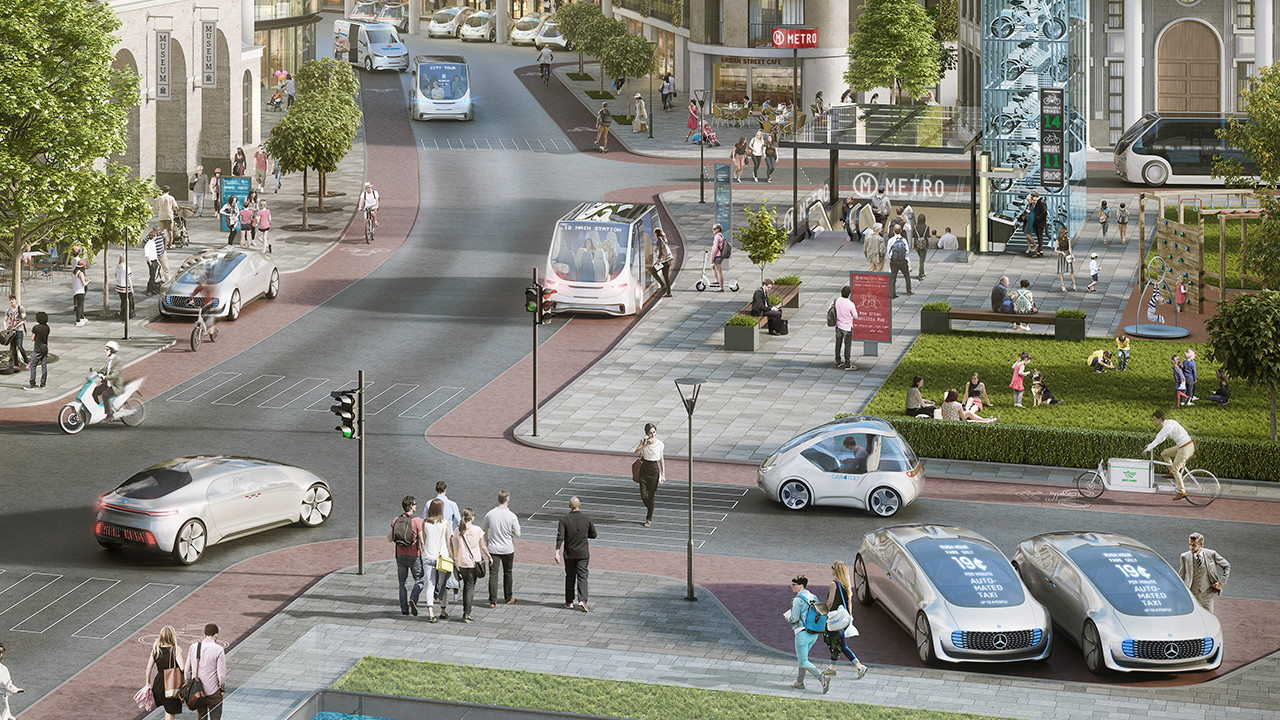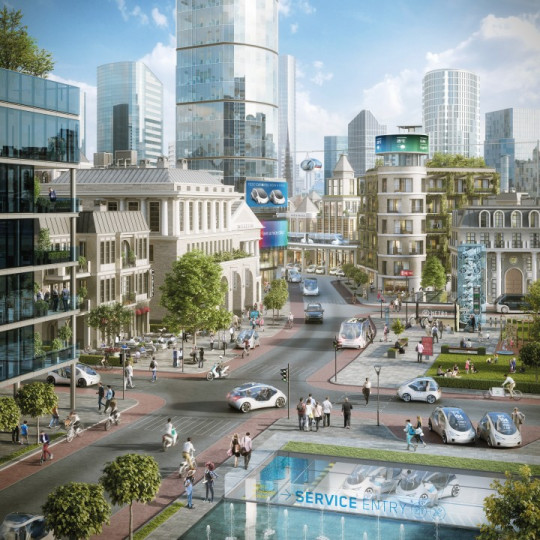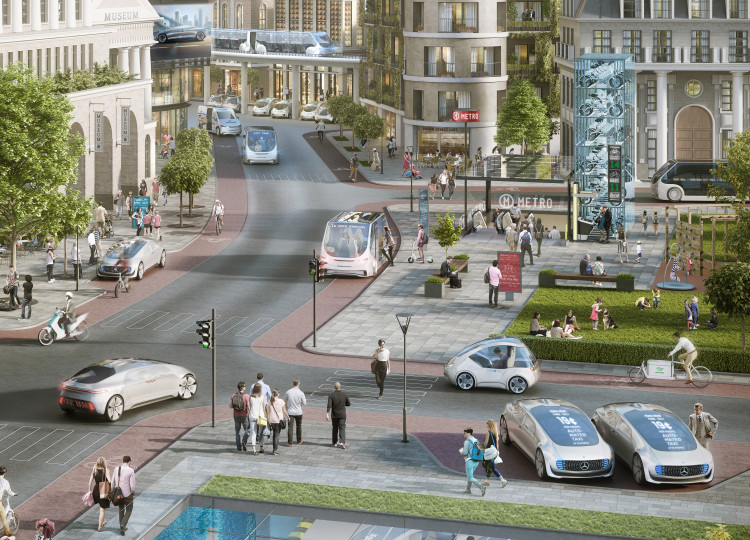Stuttgart, Germany – Bosch and Daimler are working together to take the development of fully automated, driverless vehicles forward. The two companies have now agreed to set up a development alliance that aims to make a system for fully automated (SAE-Level 4) and driverless (SAE-Level 5) vehicles a reality on city streets by the start of the next decade. The objective is the joint develop-ment of software and algorithms for an autonomous driving system. The project will take the comprehensive vehicle expertise of Daimler – the world’s leading premium-class automaker – and combine it with the systems and hardware expertise of Bosch, the world’s biggest automotive supplier. The synergies that arise as a result will be channeled into making this technology ready for produc-tion as early as possible.
The car comes to the driver
In promoting a system for fully automated, driverless vehicles for city driving, Bosch and Daimler want to improve urban traffic flows, enhance road safety, and provide an important building block for the traffic of the future. Among other things, the technology will increase the attractiveness of car sharing. It will allow people to make optimum use of the time they spend in cars, and open up new ways of being mobile to people without driver’s licenses. The project’s main aim is to make a driving system ready for production, as a result of which vehicles will be able to drive completely autonomously in cities. The idea behind it is that the vehicle will come to the driver, not the other way around. Within a predetermined urban area, people can conveniently use their smartphones to book a car share or an urban automated taxi that comes to them ready to take them to their desti-nation.
Mónika Hack
+36 70 510 5516
Mobility Solutions is the largest Bosch Group business sector. According to preliminary figures, its 2016 sales came to 44.0 billion euros, or 60 percent of total group sales. This makes the Bosch Group one of the leading automotive suppliers. The Mobility Solutions business sector combines the group’s expertise in three mobility domains – automation, electrification, and connectivity – and offers its customers integrated mobility solutions. Its main areas of activity are injection technology and powertrain peripherals for internal-combustion engines, diverse solutions for powertrain electrification, vehicle safety systems, driver-assistance and auto-mated functions, technology for user-friendly infotainment as well as vehicle-to-vehicle and vehicle-to-infrastructure communication, repair-shop concepts, and technology and services for the automotive aftermarket. Bosch is synonymous with important automotive innovations, such as electronic engine management, the ESP® anti-skid system, and common-rail diesel technology.
The Bosch Group is a leading global supplier of technology and services. It employs roughly 390,000 associates worldwide (as of December 31, 2016). According to preliminary figures, the company generated sales of 73.1 billion euros in 2016. Its operations are divided into four business sectors: Mobility Solutions, Industrial Technology, Consumer Goods, and Energy and Building Technology. The Bosch Group comprises Robert Bosch GmbH and its roughly 450 subsidiaries and regional companies in some 60 countries. Including sales and service partners, Bosch’s global manufacturing and sales network covers nearly every country in the world. The basis for the company’s future growth is its innovative strength. At 120 locations across the globe, Bosch employs 59,000 associates in research and development. The Bosch Group’s strategic objective is to deliver innovations for a connected life. Bosch improves quality of life worldwide with products and services that are innovative and spark enthusiasm. In short, Bosch creates technology that is “Invented for life.”
Additional information is available online at www.bosch.com, www.bosch.hu, www.iot.bosch.com, www.bosch-press.com, www.twitter.com/BoschPresse.





